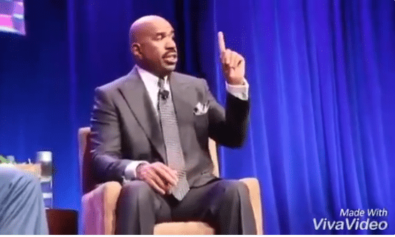For single people looking to find love or for those in a relationship and hoping to make it last, the fear of rejection is one of the greatest hurdles in any current or potential coupling.
Scientifically speaking it’s an extremely common fear that is biologically linked to a human’s desire to feel loved and accepted. Emotionally speaking, however, it’s a fear that is derived from one’s lack of understanding of who is really being rejected in the relationship.
Dr. Margaret Paul, a relationship expert with a PhD in psychology, explained that there are two versions of one’s “self.”
She describes one as the “wounded self” and the other as the “core Self.”
A better understanding of these two versions of ourselves, she explains in a recent blog post on InnerBonding.com, can help people conquer their fear of being rejected by their partner or potential partners.
“Your wounded self is the self you created when you were growing up to protect yourself from pain,” Dr. Paul writes. “This is the ego—the part of us filled with fear and false beliefs, and many ways of trying to get love and avoid pain.”
In a sense, the “wounded self” is not truly a part of a person’s true identity but rather a persona that is taken on as impenetrable armor during the quest for love.
As much as this persona is intended to protect its creator, it is usually the exact thing that causes the most harm by assuring rejection and becoming critical of those who attempt to come close.
“This is the part of us that gives ourselves up, or gets angry, blaming, or critical, or turns to various addictions, or is resistant, or is numbed out or withdrawn,” Dr. Paul explains. “The wounded self in all of us is not lovable. No one falls in love with our wounded self. No one even really likes our wounded self.”
The “core Self,” on the other hand, is an extremely lovable entity. It’s the true person that potential mates fall in love with.
Unfortunately, however, this is not the version that is typically on display.
What this ultimately means is that our core Self is rarely rejected by another person who is in tune with their core Self. Instead, it is the wounded self that is often rejected or finds reason to reject others.
This is why Dr. Paul urges people not to take rejection personally. After all, in most cases it is not even a person’s true self being criticized but rather the person that has been crafted from years of hurt, envy, loneliness and whatever other emotional scars that may encourage someone to hide behind an armor.
The key to shaking free of this wounded self, according to Dr. Paul, is to be loving and open to learning and growing.
Even then, however, some relationships have the potential to crumble apart.
“If you have been your core Self for much of the relationship, then it is very important to not take rejection personally, as it is not about you at all,” Dr. Paul continues. “It is about the other person’s fear of intimacy. In most relationships, two people get together at their common level of woundedness…if at some point in the relationship you open to learning and healing, and learn to take responsibility for yourself and more in your core Self, your partner might be threatened by this.”
This could ultimately end in a partner’s wounded self rejecting the partner’s newly embraced core Self.
Not because it is not a beautiful, lovable person, but because one person’s wounded self will rarely be able to mesh well with another person’s core Self.
“Next time you are rejected, look inside and see who is being rejected,” Dr. Paul concludes. “Your wounded self or your core Self? If someone rejected you for your wounded self, then take it as an opportunity to learn and heal. If someone rejects you for your core Self, then good riddance! This person would never have supported you in being all that you are.”


